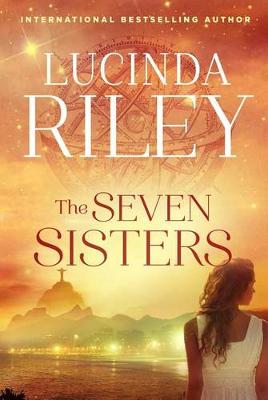Reviewed by jesstheaudiobookworm on
The first installment, The Seven Sisters, is about Maia, the eldest of a set of adopted sisters. After the death of her adoptive father, she sets off from Switzerland to investigate her genealogical origins in Brazil. There was a very nice set up to the story involving Maia's life and upbringing in Switzerland. I particularly enjoyed learning about her relationships with her sisters. Maia leaves lots of loose ends in Switzerland and takes off for Brazil.
Once there, she begins to discover that her biological family has a long and sordid history, although she doesn't yet know how she fits into it. At this point in the story, we begin to receive historical POV chapters from Maia's great-grandmother Isabella. The majority of the story takes place in the 1920s and follows Isabella, whom is living at a point in time in which the Cristo is being constructed in Brazil. The Isabella chapters are admittedly slow, almost to the point of boredom, And it's hard to see the relevance to Maia's life until considerably further in the story.
The length and density of Isabella's story firmly places The Seven Sisters in the historical fiction category, as most of the book takes place in 1927, rather than 2007. Isabella's story was interesting, but it definitely dragged on much too long. I wish it had been broken up with more of Maia's chapters interspersed throughout. We return to Maia at the end of the book and finally see a resolution regarding the integration of the two timelines. Riley took an interesting approach to developing her contemporary character through an ancestor. It is mentioned multiple times how much Maia not only physically resembles Isabella but also shares her temperament, therefore we can use our considerable knowledge of Isabella to further develop the character of Maia, even when she is not speaking.
The Seven Sisters isn't a shock-and-awe type of book, so adrenaline junkies beware: This isn't for you. It took me a while to get through this audiobook, not only because of its length (18 hours), but also because of its sheer density and plodding pace. I found that it was best to take breaks from this title and alternate between listening to it and a faster paced audio. The Seven Sisters provided welcomed reprieves when other titles became too intense. I also found it to be a soothing listen, particularly when my anxiety was heightened. The upside to listening to a dense book is that it was refreshing to be able to immerse myself in it and let everything else melt away.
I am still more interested in the overall series arc rather than the individual stories. The ending of The Seven Sisters reaffirmed my intrigue with its cliffhangers and loose ends. Although Isabella's story concluded at the end of this installment, we are given the sense that Maia's has not. In fact, several questions surrounding her more recent past are raised towards the end of the book.
The ending of this installment introduced another sister's point-of-view, whom the next installment will be centering around. For me, this isn't a series that has me jumping out of my seat to grab the next installment, but I have no doubt that I will eventually listen to it. The writing was so beautiful and detailed. I recommend this series to lovers of historical fiction!
Narration review: Emily Lucienne provided beautiful narration for The Seven Sisters. She didn't attempt distinct Brazilian accents, which may seem odd considering the book's setting, but the accents that she did provide were done very well. As far as I could tell, the pronunciations were done correctly and they lent an air of authenticity to the story and its setting. I'm pleased to note that each installment will have a different narrator, which seems appropriate for the sisters. I look forward to experiencing them all in the future. ♣︎
Reading updates
- Started reading
- 6 April, 2019: Finished reading
- 6 April, 2019: Reviewed
